The conference dives right into the ongoing debate surrounding the challenging implementation of the ECHA/EFSA guidance for the identification of Endocrine Disruptors and provides participants with all the recent regulatory and scientific developments.
Would you instead prefer to join on-site in Cologne? Then you can find further information here!
The ECHA/EFSA guidance for the identification of Endocrine Disruptors in the context of Regulations (EU) No 528/2012 and (EC) No 1107/2009 requires a highly complex and challenging assessment for all active substances. Ever since its publication in June 2018, implementing the requirements has been and will continue to be a challenge. With the proposed introduction of stricter regulation for EDs under the CLP and REACH Regulations, the challenge has recently been broadened. This conference will dive into the debate surrounding Endocrine Disruptors and covers all the relevant recent regulatory and scientific developments.
Professionals working in the fields of:
Sectors that should take part:
Picture Credit: © Subbotina Anna/shutterstock.com, © chestra - Fotolia.com
PLEASE NOTE: The indicated times refer to Central European Time CET.
For further time zones, please view here.
Lennart Weltje, BASF, Germany
Emily McVey, Board for the Authorisation of Plant Protection Products and Biocides (Ctgb), The Netherlands
Jordane Wodli, European Commission, Belgium
Kirsi Myöhänen, European Chemicals Agency (ECHA), Finland
Heli Hollnagel, Dow Europe, Switzerland
Anna Lanzoni, European Food Safety Authority (EFSA), Italy (virtual presentation)
Judy Choi, Federal Institute for Risk Assessment (BfR), Germany
Jo Little, Health and Safety Executive, Chemicals Regulation Directorate (HSE/CRD), United Kingdom
Daniela Fruth, knoell Germany, Germany
Andreas Natsch, Givaudan, Switzerland
Katie Paul Friedman, U.S. Environmental Protection Agency (EPA), United States (virtual presentation)
Lennart Weltje, BASF, Germany
Emily McVey, Board for the Authorisation of Plant Protection Products and Biocides (Ctgb), The Netherlands
Lisa Baumann, Heidelberg University, Germany
Helen Tinwell, Bayer CropScience, France
Laurent Lagadic, Bayer CropScience, Germany
Charles Hazlerigg, Enviresearch, United Kingdom
Natalie Burden, NC3R – Reduction Refinement, and Replacement of Animals used in Research, United Kingdom
Grace Panter, CropLife Europe, wca environment, United Kingdom
Name
Company
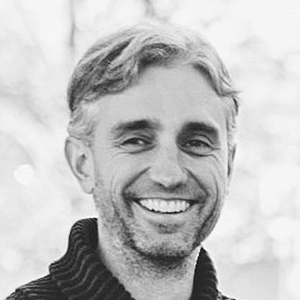
Roman Ashauer
Syngenta, Switzerland

Lisa Baumann
University of Heidelberg, Germany
Lisa Baumann is a Research Group Leader at the University of Heidelberg. She is specialized in aquatic toxicology with focus on endocrine effects, hepatotoxicity and immunotoxicity in fish. Special focuses of her work are developmental studies with zebrafish (embryos), as well as histopathological analyses. She is part of the EFSA working group for endocrine disruptors.
moreless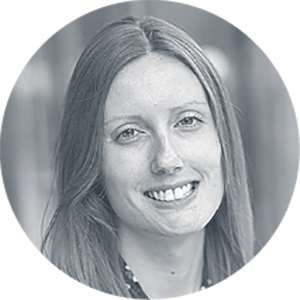
Natalie Burden
NC3R - Reduction, Refinement, and Replacement of animals used in research, testing, and education, United Kingdom
Natalie Burden is currently a Programme Manager in ecotoxicology at the UK’s NC3Rs. Prior to this she worked in drug discovery at Pfizer and completed a PhD and post-doc in medical research.
morelessJudy Choi
Federal Institute for Risk Assessment (BfR), Germany
Judy Choi is a Certified Toxicologist (DABT, ERT), currently working as a Senior Scientific Officer in the \"Toxicology of Active Substances and their Metabolites\" Unit, Department of Pesticides Safety, at the Federal Institute for Risk Assessment (BfR) in Berlin, Germany. One of her activities at BfR is the toxicological evaluation of active substances for ED potential of human health relevance, and she has been an invited expert in multiple meetings on ED with EFSA or ECHA.
morelessDaniela Fruth
knoell, Germany
Daniela Fruth is a Regulatory Toxicologist at knoell Germany GmbH. She studied food chemistry at the Technical University of Kaiserslautern and is holding a PhD in Pharmacy from the Johannes Gutenberg-University Mainz. After her PhD period spent in the chemical industry focussing on genotoxicity and in vitro metabolism, she joined knoell in 2016 and has since then worked in the biocide sector with a focus on human safety, exposure and risk assessment as well as regulatory affairs. She is part of the knoell ED expert team and is involved in the assessment of active substances (biocides and crop protection) and co-formulants with respect to endocrine disrupting properties
moreless
Charles Hazlerigg
Enviresearch, United Kingdom
Charles Hazelrigg is a Senior Ecotoxicologist and UKRI Future Leaders Fellow based at Enviresearch Ltd. He uses ecological modelling approaches to better understand the impacts of chemical stressors on populations, informing decision-making by linking laboratory-generated ecotoxicity data to protection goals.
moreless
Charles Hazlerigg
Enviresearch, United Kingdom

Heli Hollnagel
Dow Europe, Switzerland
Heli Hollnagel is a EUROTOX registered Toxicologist, working as Regulatory Toxicologist and EMEA Science Leader at Dow Europe. She is also the Chair of Cefic's Polymers Network of Experts and Cefic's LRI Stragetic Implementation Group, as well as a member of the ECETOC Scientific Committee.
moreless
Laurent Lag
Bayer CropScience, Germany
Laurent Lagadic works for the Environmental Safety Division of Bayer CropScience in Germany, where he is involved in aquatic risk assessment for pesticides, and currently leads the development and application of testing strategies for evaluating potential endocrine disrupting properties of these substances in aquatic organisms. He holds a PhD in fundamental and environmental toxicology and has previously worked as an Aquatic Ecotoxicologist at the French National Research Institute for Agriculture, Food and Environment (INRAE) for over 20 years.
morelessAnna Lanzoni
European Food Safety Authority (EFSA), Italy (to be confirmed)
Anna Lanzoni is a Senior Scientific Officer at the European Food Safety Authority EFSA. She has previously served as Head of Pathology at Aptuit, a pharmaceutical services provider.
moreless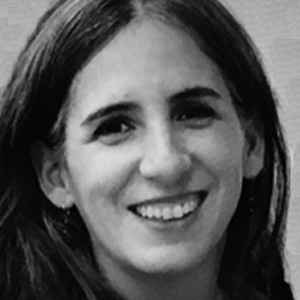
Mariana Ledesma
Swedish Chemicals Agency (KEMI), Sweden
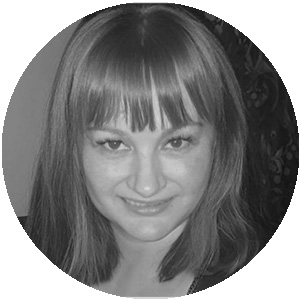
Jo Little
Health and Safety Executive / Chemicals Regulation Division (HSE/CRD), United Kingdom
Jo Little has a background in Biochemistry and joined HSE in 2016 as a Regulatory Toxicologist. After leaving for a short time to work as a Consultant Toxicologist, Jo returned to HSE in July 2021 as a Senior Regulatory Toxicologist. Although working on both pesticide and biocide active Substances and product applications, Jo has overall responsibility at HSE for the toxicology aspects of biocidal active substances and is the technical lead for Endocrine Disruption.
moreless
Emily McVey
Board for the Authorisation of Plant Protection Products and Biocides (Ctgb), The Netherlands
Emily McVey is an experienced Regulatory Toxicologist and works as a Risk Assessor in ecotoxicology at the Ctgb. Her specialties include environmental toxicology, wild vertebrates (birds, mammals, amphibians, fish), molecular mechanisms of toxicity, neurodevelopmental toxicity and endocrine disruption testing and assessment.
moreless
Kirsi Myöhänen
European Chemicals Agency (ECHA), Finland
Kirsi Myöhänen is a Scientific Officer Unit (C1 Classification) of the European Chemicals Agency ECHA. A toxicologist (PhD Pharm, MSC Pharm, and MSC Tox, European Registered Toxicologist) by trainings, she has been working in ECHA Classification unit from 2012, in ECHA Biocides unit in 2013-2019 with biocidal active substance approval and since 2019 again in classification, where she is currently also involved in developing classification criteria for EDs. Kirsi is also a co-chair of the ECHA Endocrine Disruptor Expert Group (ED EG). She has previously worked as Senior Adviser at the Finnish Safety and Chemicals Agency involved also in developing ED criteria for biocides and PPPs.
moreless
Andreas Natsch
Givaudan, Switzerland
Andreas Nastch has over 20 years of research of experience in the fragrance industry. He is currently a Senior Research Fellow with Givaudan in Switzerland, where he is responsible for development and validation of new methods in in vitro toxicology and development of integrated testing strategies (ITS) for skin sensitization testing. He holds a PhD from ETH Zurich and has spent his post doc fellowship at the Centro Nacional de Biotecnologia in Madrid.
moreless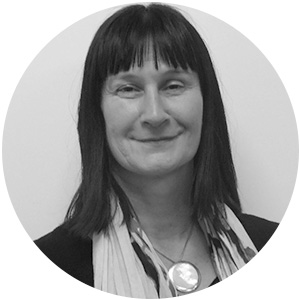
Grace Panter
CropLife Europe / wca environment, United Kingdom
Grace Panter joined wca UK in 2018 as an environmental toxicologist and leads on the monitoring of in vitro and higher tier chronic fish and amphibian studies to address regulatory issues, including the assessment of potential endocrine disrupting chemicals. She previously worked at Syngenta conducting environmental risk assessments for PPP for submission in Europe, and worked at the Brixham Environmental Laboratory as a project manager and study director on aquatic projects.
moreless
Katie Paul Friedman
United States Environmental Protection Agency (US EPA), United States
Katie Paul Friedman joined the National Center for Computational Toxicology in the Office of Research and Development at the US EPA in August 2016, where she is currently focused on integration of multiple information streams to address the needs of preliminary risk assessment, with additional interests in uncertainty in alternative and traditional toxicity information, endocrine bioactivity prediction and in vitro kinetics. Previously, she worked as a Regulatory Toxicologist at Bayer CropScience with specialties in neurodevelopmental and endocrine toxicity, high-throughput science, and predictive toxicology. She has been actively involved in multi-stakeholder projects to develop adverse outcome pathways, alternative testing approaches, and the regulatory acceptance of these tools.
morelessMelissa Reed
Health and Safety Executive / Chemicals Regulation Division (HSE/CRD), United Kingdom
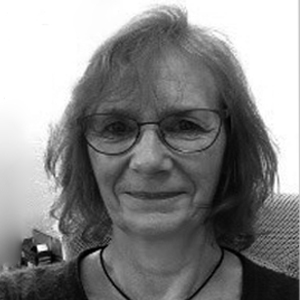
Helen Tinwell
Bayer CropScience, France
Helen Tinwell has a PhD in genotoxicity and joined Bayer Crop Science in 2005 after having spent 17 years at Syngenta. Until recently, she has worked in research toxicology focusing on method development and mode of action investigations to address endocrine disruption. In 2017 she became team leader of the Regulatory Toxicology group. She leads the development and application of testing strategies for evaluating potential endocrine-disrupting properties of plant protection molecules in mammals and is a member of the ECPA ED Expert Group.
moreless
Lennart Weltje
BASF, Germany
Lennart Weltje holds a PhD in ecotoxicology and environmental chemistry and currently works as a Senior Ecotoxicologist at BASF conducting risk assessments for PPPs and biocides. He is also an honorary Professor at the Faculty of Agricultural Sciences of the Georg-August University in Goettingen. His former stations include the Dutch National Institute for Public Health and the Environment (RIVM).
morelessJordane Wodli
European Commission, Belgium
Jordane Wodli currently serves as a policy advisor national expert on chemicals in the European Commission’s DG Environment.
morelessParticipation Fee: € 995.00 plus VAT.
The registration fee includes the following benefits:
Representatives of an authority or a public university are therefore eligible for a reduced fee of € 495.00 plus VAT per person (please provide evidence). The reduced fee cannot be combined with other rebates.
Group Reductions
For joint bookings received from one company we grant a 15% discount from the third participant onwards.
Terms of Cancellation / Book without Risk
You can cancel your participation in our online events free of charge and without giving reasons in writing up to 1 week before the start of the event. In the case of later cancellations and non-login to the online event, no participation fees can be refunded.
In this case, however, you will receive access to the documentation after the event.
You can name a substitute participant free of charge at any time.
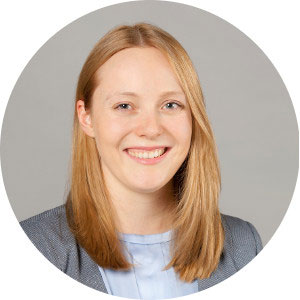
Claudia Werner
Programme and conceptual design
+49 231 75896-83
cwerner@akademie-fresenius.de

Claudia Werner
Programme and conceptual design
+49 231 75896-83
cwerner@akademie-fresenius.de

Claudia Werner
Programme and conceptual design
+49 231 75896-83
cwerner@akademie-fresenius.de
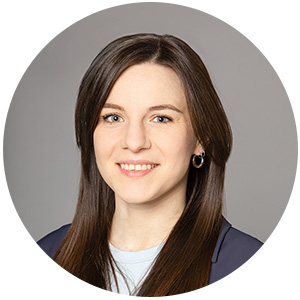
Alexandra Schardt
Organisation and participant management
+49 231 75896-74
aschardt@akademie-fresenius.de

Alexandra Schardt
Organisation and participant management
+49 231 75896-74
aschardt@akademie-fresenius.de
Present your Company at the Event.
You can personally present your products and services directly to your specified target group. We are happy to provide you with further information on our range of available options – from displaying company information at the reception counter to presenting your company with an exhibition stand.
We would be pleased to assist you personally:
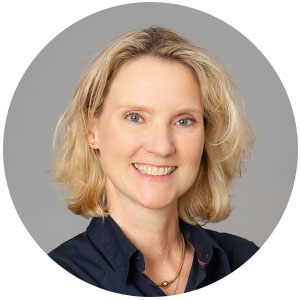
Monika Stratmann
Phone: +49 231 75896-48
info@akademie-fresenius.de
We offer journalists and editors a platform where they can get in touch with the experts.
If you are the editor of a specialist publication and interested in a press pass or media partnership, please contact us well in advance. We are happy to advise you.
Please contact us:
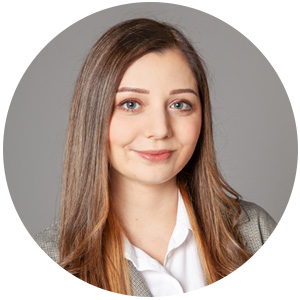
Katharina Geraridis
Phone: +49 231 75896-67
presse@akademie-fresenius.de
© Die Akademie Fresenius GmbH